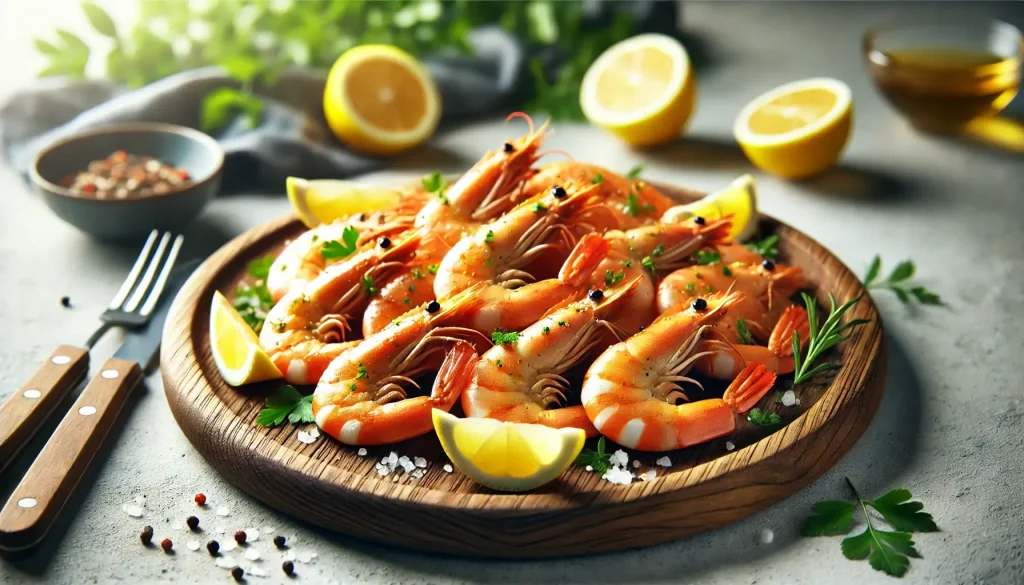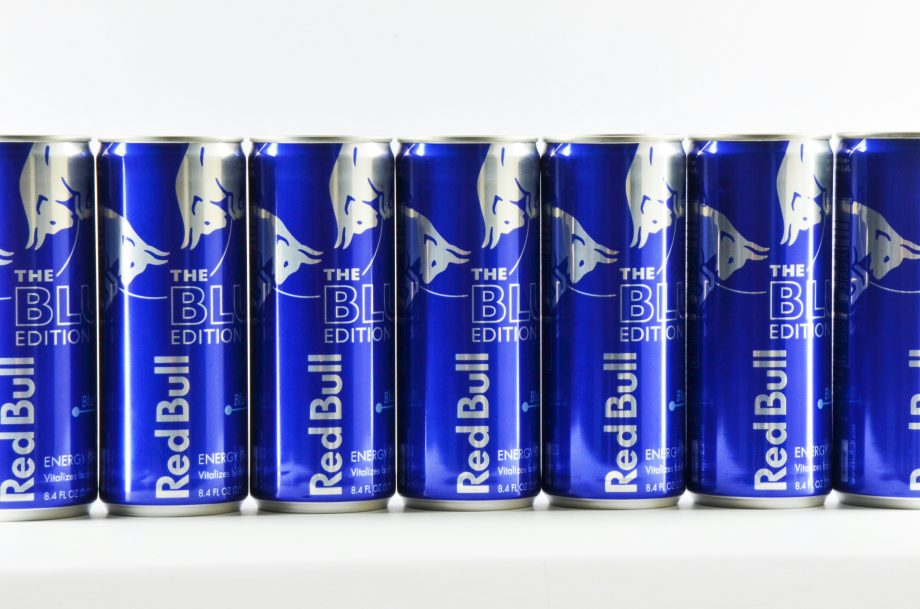Many Muslim communities living in non-Muslim countries often turn to the Internet for answers about Islamic concepts when they cannot find Islamic scholars nearby. This makes it difficult for some to determine the permissibility of certain foods, such as Shrimp. Since different schools of thought have varying opinions, some people consider Shrimp completely halal, while others are unsure. This issue is important because Islamic teachings emphasize the need for people to consume only what is lawful. We are going to discuss about is shrimp halal i Islam?
To help clear up confusion, this platform has been designed to address these concerns and provide guidance based on Islamic teachings. Some Muslims prefer seeking clarity from a reliable webpage that discusses food laws in Islam, especially when they lack access to local scholars. Understanding Shariam laws regarding food choices is essential for maintaining religious observance, and this topic deserves careful discussion. is Squid Halal?
What is Shrimp?
Before discussing whether Shrimp is halal, it’s important to understand what it actually is. Shrimp are crustaceans with long, narrow bodies and multiple pairs of legs. They are commonly found in rivers but prefer to live in the sea. Many people across the world enjoy Shrimp, and it is widely available in the seafood section of grocery stores and on restaurant menus. Its popularity comes from its delicious taste and soft texture, which makes it easy to chew.
Beyond being a favorite food, Shrimp play an important role in the ocean’s ecosystem. They are a key part of the food chain, helping maintain a balanced and healthy marine environment. Their presence is crucial, and they should be protected for the health of marine life. Additionally, doctors often recommend Shrimp due to its many health benefits. But when it comes to the question, “Is Shrimp Halal?” we will share valuable information to help our visitors understand its permissibility in Islam.
Is Shrimp Halal?
This is a burning question, and many people, especially the Muslim Community, are eager to know the truth about Shrimp. Muslim scholars have scattered opinions on this issue. Some consider Shrimp permissible, while others hold different views. The Shafi’i School of Thought classifies Shrimp as haram based on Hadith, which suggests a general prohibition on sea creatures that do not have scales. Since Shrimp lacks scales, they argue it does not meet the requirement for halal seafood.
On the other hand, most scholars believe Shrimp is halal because it originates from the sea, and no restriction is specifically mentioned in the Holy Quran. Since no Fatwa explicitly forbids it, many conclude that Shrimp is allowed according to Islamic teachings. Here are some reasons shrimp is considered halal:-
- Shrimp is an aquatic creature that lives in water, and seafood is generally permissible in Islam.
- There are no specific prohibitions in the Quran or Hadith that explicitly forbid the consumption of Shrimp.
- Shrimp meets the requirements of Halal food, as it is low in fat and does not contain blood, similar to fish.
- Shrimp is often compared to fish due to its habitat and characteristics, and fish is considered halal in Islam.
- Seafood is recognized as a valuable food source, providing nutrients and dietary variety, and is allowed unless explicitly prohibited.
- Shrimp has been consumed by different cultures for centuries, including Muslim-majority countries, without any religious objections.
- Most Islamic scholars consider Shrimp permissible due to the absence of prohibitions and its similarity to other halal seafood.
Shrimp is Good for Health?
Many people enjoy Shrimp not only for its taste but also for its health benefits. It is a rich source of omega-3 fatty acids, which help maintain heart health. Since Shrimp is low in carbs, it is a great choice for those on a low-carb or keto diet. Some people worry about its cholesterol content, but research has shown that the cholesterol in Shrimp does not negatively affect the heart.

Adding Shrimp to your meals can be a delicious way to support a healthy diet. It provides essential nutrients while being light and easy to digest. Whether grilled, boiled, or cooked in various dishes, Shrimp remains a favorite among seafood lovers. Here are some benefits of eating shrimp: –
- Shrimp is low in calories, making it a great choice for weight management while still providing essential nutrients.
- It contains vitamins like B12 and minerals such as iodine, selenium, phosphorus, and calcium, which support energy production, thyroid function, and bone strength.
- Shrimp is rich in omega-3 fatty acids like EPA and DHA, which help improve heart health, brain function, and reduce inflammation.
- It is low in saturated fat and has no trans fat, making it a heart-healthy option when consumed in moderation.
- Shrimp contains antioxidants like astaxanthin, which help protect cells from damage and support overall well-being.
- The vitamins and minerals in Shrimp, such as vitamin C, zinc, and selenium, help boost the immune system and fight infections.
How to Cook Shrimp in Halal Way?
Muslims love to enjoy halal food, and when it comes to cooking shrimp, following a halal method ensures that the dish remains permissible and delicious. The right halal method begins with choosing halal-certified ingredients and preparing shrimp in a way that aligns with Islamic dietary guidelines.
To make shrimps halal, start by cleaning them properly and avoiding any non-halal additives. Using halal-approved seasonings and healthy cooking techniques, you can prepare flavorful dishes. Whether you grill, sauté, or fry, following halal recipes ensures that your shrimp dish remains delicious and suitable for consumption.
- Clean and devein the shrimp by removing the shell and digestive tract to ensure purity before cooking.
- Marinate the shrimp with halal-friendly spices like garlic, ginger, cumin, coriander, paprika, salt, and pepper for added flavor.
- Heat halal-approved oil in a pan over medium heat, then cook the shrimp for 2-3 minutes per side until they turn pink and opaque.
- Grill the shrimp on a skewer or grilling basket for a smoky flavor and char marks as a healthier alternative.
- Serve the cooked shrimp with rice, vegetables, or salad for a complete and delicious meal.
- Shrimp is high in cholesterol, but for most people, dietary cholesterol has less impact on blood cholesterol compared to saturated and trans fats.
- Individuals with health conditions like familial hypercholesterolemia should monitor their intake based on doctor’s advice.
- Shellfish allergies can cause severe reactions, so people with shellfish allergies must avoid shrimp entirely.
- Shrimp may contain contaminants like heavy metals and chemicals, so choosing wild-caught shrimp or those from sustainable sources is recommended.
- Processed or pre-cooked shrimp may have high sodium due to preservatives, making fresh or home-cooked shrimp a healthier option.
- Shrimp farming can have environmental impacts, so opting for sustainably sourced shrimp helps reduce concerns.
Potential Side Effects of Eating Shrimp
While eating shrimp offers many health benefits, it also comes with some negative effects that may impact a healthy person. Some individuals experience allergic reactions, while others may face digestive discomfort or cholesterol concerns.
Excessive shrimp consumption can sometimes lead to health problems, especially if the shrimp is not sourced or cooked properly. Choosing fresh, well-prepared shrimp in moderation helps balance the benefits and risks, ensuring a healthier dining experience.
- Shrimp is relatively high in cholesterol. While it may not significantly impact blood cholesterol levels for most people, those with conditions like familial hypercholesterolemia or specific dietary restrictions should monitor their intake.
- Shellfish allergies are common, and shrimp can trigger severe reactions in allergic individuals. Those with shellfish allergies must avoid shrimp entirely to prevent health risks.
- Shrimp can sometimes contain contaminants such as heavy metals and chemicals. Choosing wild-caught shrimp or those certified by sustainable and responsible farming practices can help reduce exposure to these harmful substances.
- Processed or pre-cooked shrimp can be high in sodium due to added preservatives and seasonings. Opting for fresh shrimp and cooking it at home without excessive salt is a healthier alternative.
- The farming and harvesting of shrimp can have significant environmental effects. Selecting sustainably sourced shrimp helps reduce ecological damage and supports responsible seafood consumption.
Frequently Asked Questions
Q: Is shrimp halal?
A: Yes, shrimp is considered halal in Islam. Since it is a type of seafood, it is permissible to eat according to most Islamic scholars. However, different schools of thought may have varying views, so it’s always good to check with your local scholar if needed.
Q: Is shrimp halal in Islam?
A: Yes, shrimp is halal in Islam because it falls under the category of seafood, which is generally permissible. Most Islamic scholars agree that all types of seafood, including shrimp, can be eaten without restrictions, making it a widely accepted halal option.
Q: Is shrimp halal in Hanafi?
A: There are differing views within the Hanafi school of thought. Some Hanafi scholars consider shrimp to be makrooh (discouraged) rather than haram, while others permit it completely. Due to these differences, Hanafi followers should consult their religious authorities for clarification.
Q: Is shrimp halal for Sunni?
A: Yes, shrimp is halal for Sunni Muslims. The majority of Sunni scholars agree that all types of seafood, including shrimp, are permissible to eat. As long as the shrimp is not mixed with haram ingredients, it is considered a lawful and beneficial food choice.
Q: Is shrimp halal for Shia?
A: In Shia Islam, there is some debate regarding the permissibility of shrimp. According to Ayatollah Sistani, shrimp is halal, while other shellfish, such as crab and lobster, are not. Therefore, Shia Muslims can consume shrimp without concern, provided it is prepared in a halal manner.
Q: Is shrimp halal in the Quran?
A: The Quran allows the consumption of seafood, which includes shrimp. In Surah Al-Ma’idah (5:96), Allah states that the food of the sea is lawful, meaning shrimp is generally considered permissible. Islamic scholars interpret this verse to mean that all seafood is halal.
Q: Is shrimp halal or makrooh?
A: Shrimp is considered halal by most scholars, but some within the Hanafi school of thought consider it makrooh, meaning discouraged but not entirely forbidden. If you follow the Hanafi school, it is recommended to seek advice from a scholar before consuming shrimp.
Q: Is shrimp halal according to IslamQA?
A: According to IslamQA and many Islamic scholars, shrimp is halal. They categorize it as seafood, which is permissible to eat. However, they also acknowledge that some Hanafi scholars consider it makrooh, meaning it is better to avoid but not entirely forbidden.
Q: Is shrimp halal according to Sistani?
A: Yes, according to Ayatollah Sistani, shrimp is halal. However, other shellfish, such as crab and lobster, are not considered permissible. Therefore, Shia Muslims who follow his rulings can eat shrimp without any concerns regarding its halal status.
Q: Is shrimp halal to eat?
A: Yes, shrimp is halal to eat as long as it is not contaminated with haram ingredients. It is considered a beneficial source of protein and essential nutrients, making it a healthy addition to a balanced diet when consumed in a permissible manner.
Q: Why is shrimp halal but not lobster?
A: The permissibility of shrimp versus lobster depends on Islamic scholarly interpretations. Some scholars allow all seafood, while others differentiate based on the creature’s characteristics. Shrimp is widely accepted as halal, whereas lobster is debated and sometimes considered haram or makrooh.
Q: Why is shrimp halal but not kosher?
A: Halal and kosher dietary laws have different guidelines. In Islam, seafood is generally halal, whereas in Judaism, kosher laws prohibit shellfish, including shrimp. This is why shrimp is halal for Muslims but not considered kosher for Jewish people.
Q: Is Panda Express shrimp halal?
A: No, Panda Express shrimp is not halal because the restaurant does not use halal-certified ingredients or cooking methods. Cross-contamination with non-halal foods is also a concern, making it unsuitable for those following a strict halal diet.
Q: Is eating shrimp halal?
A: Yes, eating shrimp is halal. Since it is a type of seafood, it is considered permissible in Islam. Most scholars agree that shrimp is lawful to eat, making it a common choice for those who follow a halal diet.
Q: Is all shrimp halal?
A: Yes, all shrimp is halal as long as it is not contaminated with haram substances. However, some processed shrimp products may contain non-halal ingredients, so it is always best to check labels before purchasing.
Q: Is Popeyes shrimp halal?
A: Popeyes shrimp is not halal in most locations. While some Popeyes outlets offer halal-certified chicken, their shrimp is typically not halal due to cooking methods and lack of halal certification. It’s best to verify with the specific restaurant.
Q: Is Maruchan shrimp halal?
A: No, most Maruchan shrimp-flavored products are not halal because they may contain non-halal ingredients such as animal-based flavorings or additives. Always check for halal certification before consuming processed foods.
Q: Is tempura shrimp halal?
A: Tempura shrimp is halal as long as the batter and frying oil are free from haram ingredients. Some tempura batter may contain alcohol or other non-halal additives, so it is best to verify before consuming.
Q: Is crab and shrimp halal?
A: Shrimp is halal according to most scholars, but there is debate regarding crab. Some scholars consider crab halal, while others classify it as haram or makrooh. It is best to follow the ruling of your particular school of thought.
Q: Is mantis shrimp halal?
A: There is some debate on mantis shrimp. While it is technically a type of shrimp, some scholars question its permissibility due to its unique characteristics. If you have doubts, consult a scholar before consuming it.
Q: Is Top Ramen shrimp halal?
A: Most Top Ramen shrimp-flavored noodles are not halal because they may contain non-halal ingredients such as pork-derived additives. Always check the packaging for halal certification before purchasing.
Q: Is prawn and shrimp halal?
A: Yes, both prawns and shrimp are halal according to most Islamic scholars. Since they are seafood, they are generally considered permissible in Islam, making them safe to eat as part of a halal diet.



